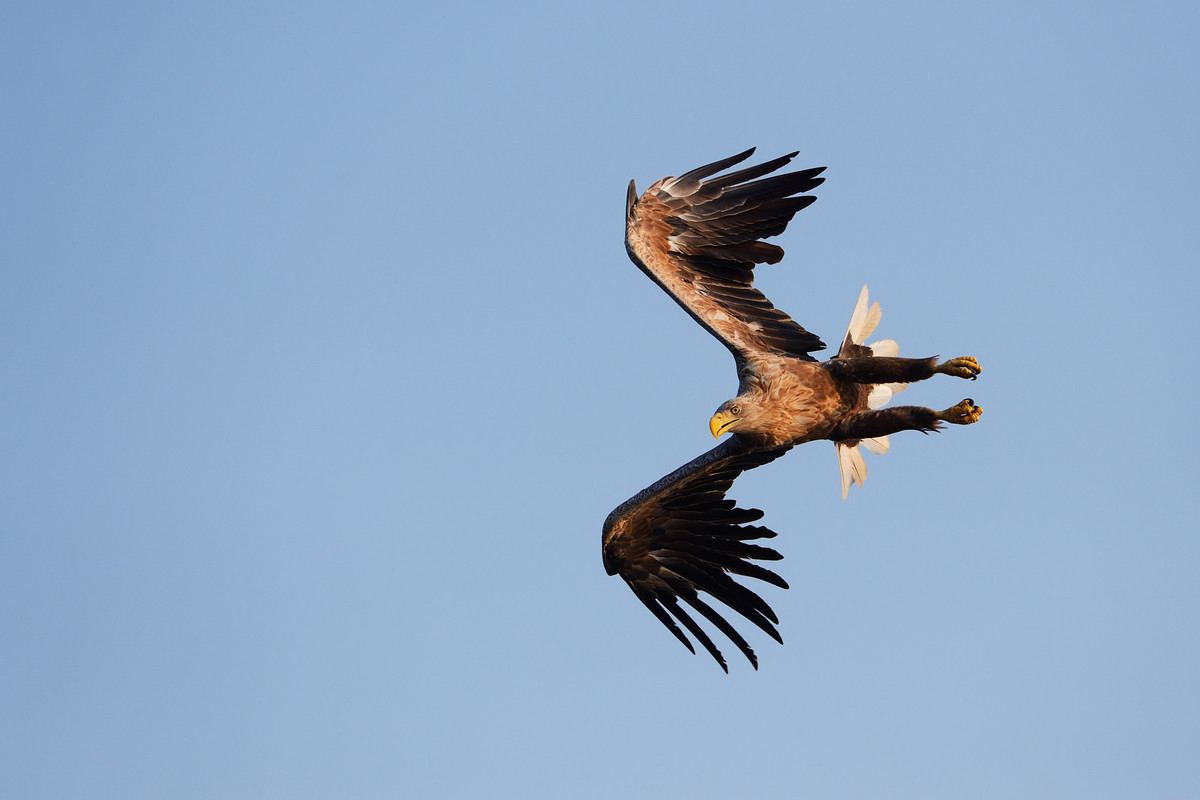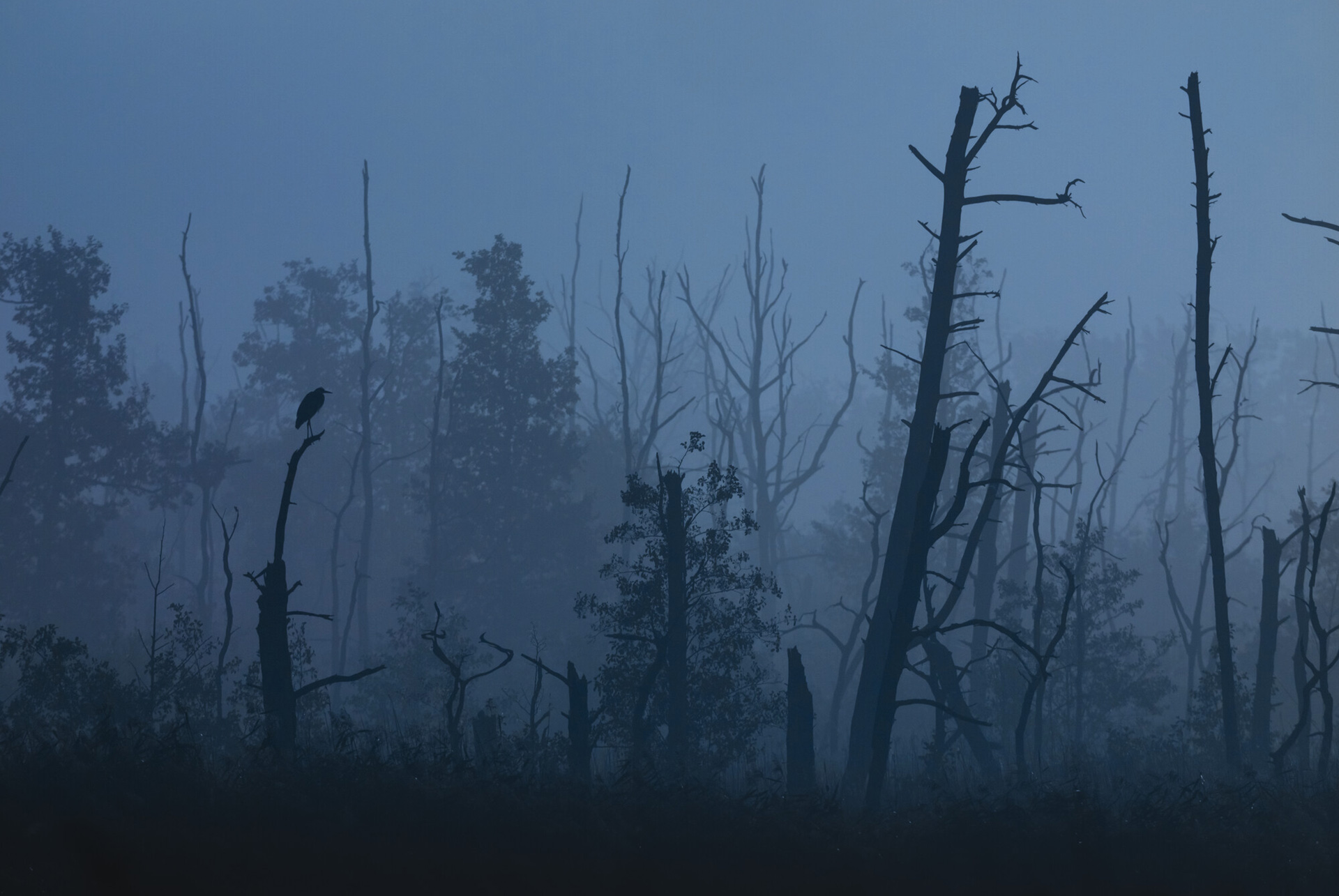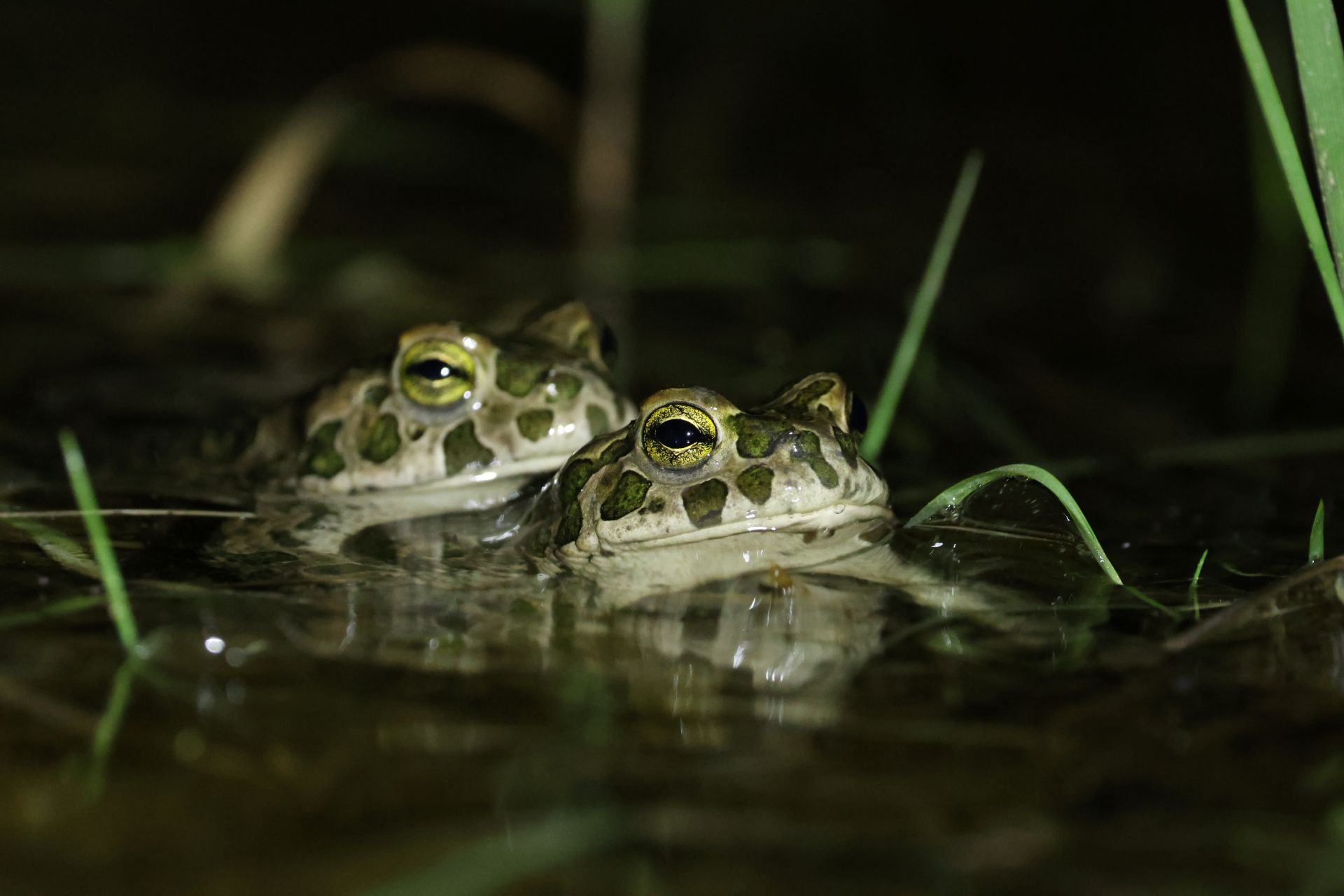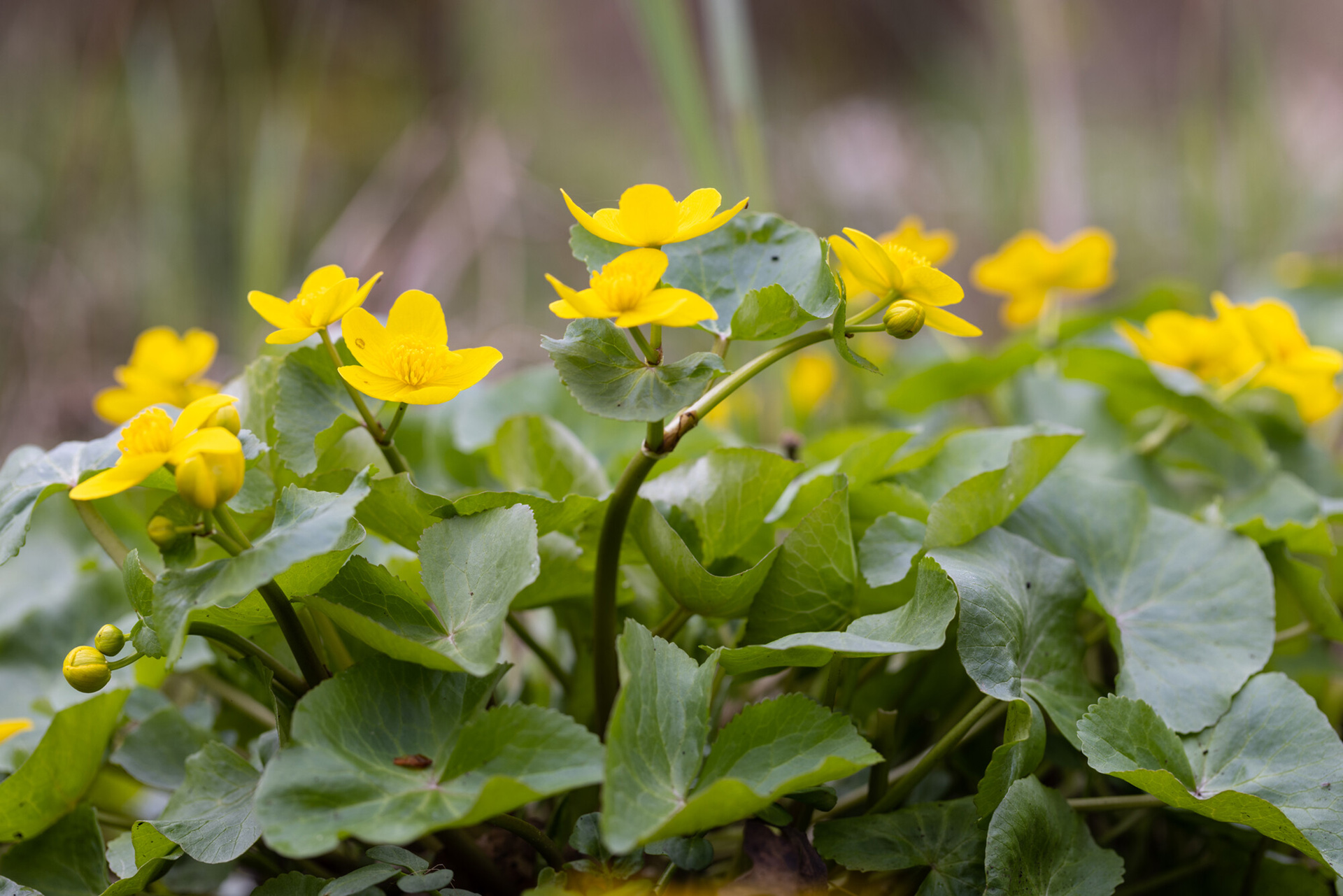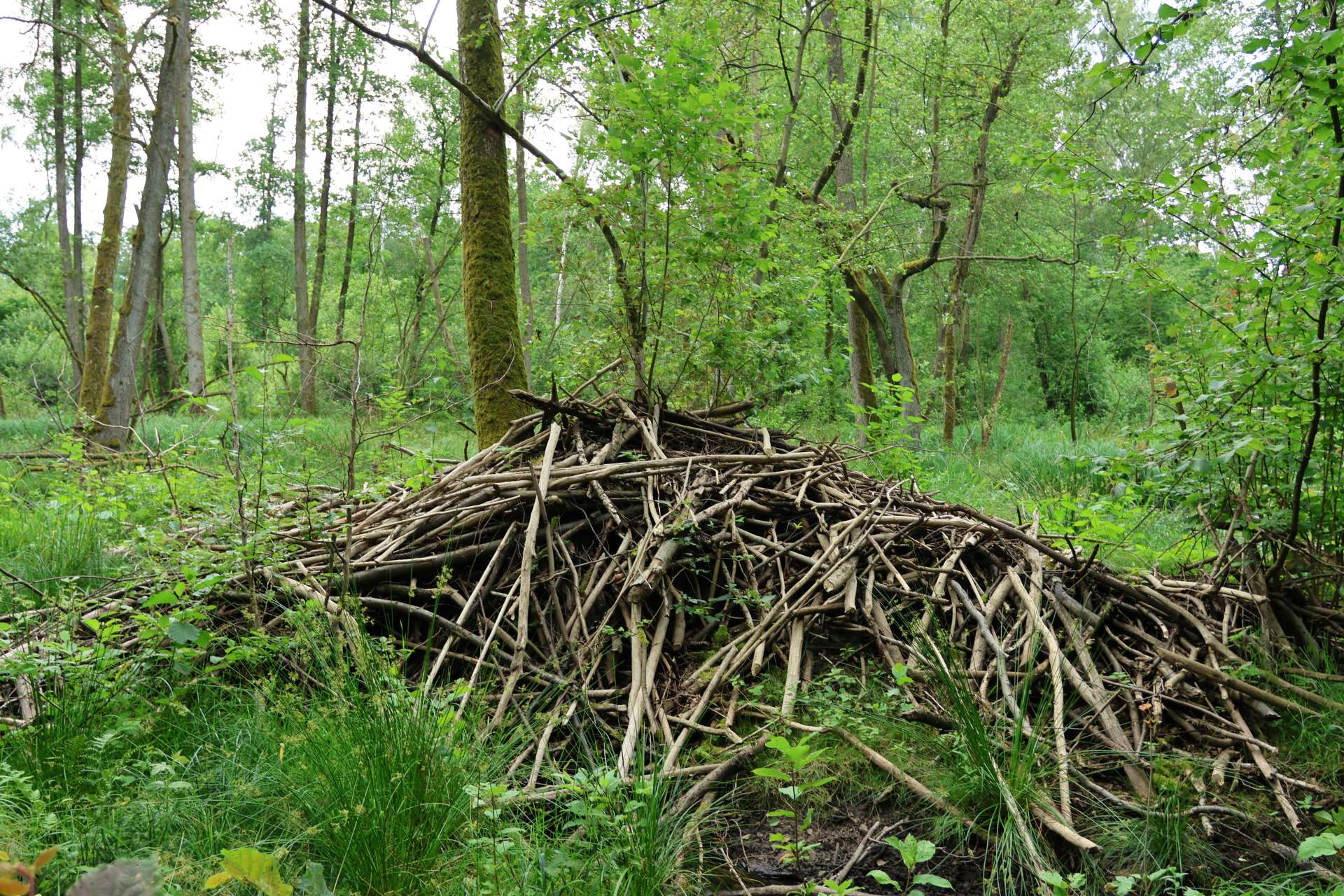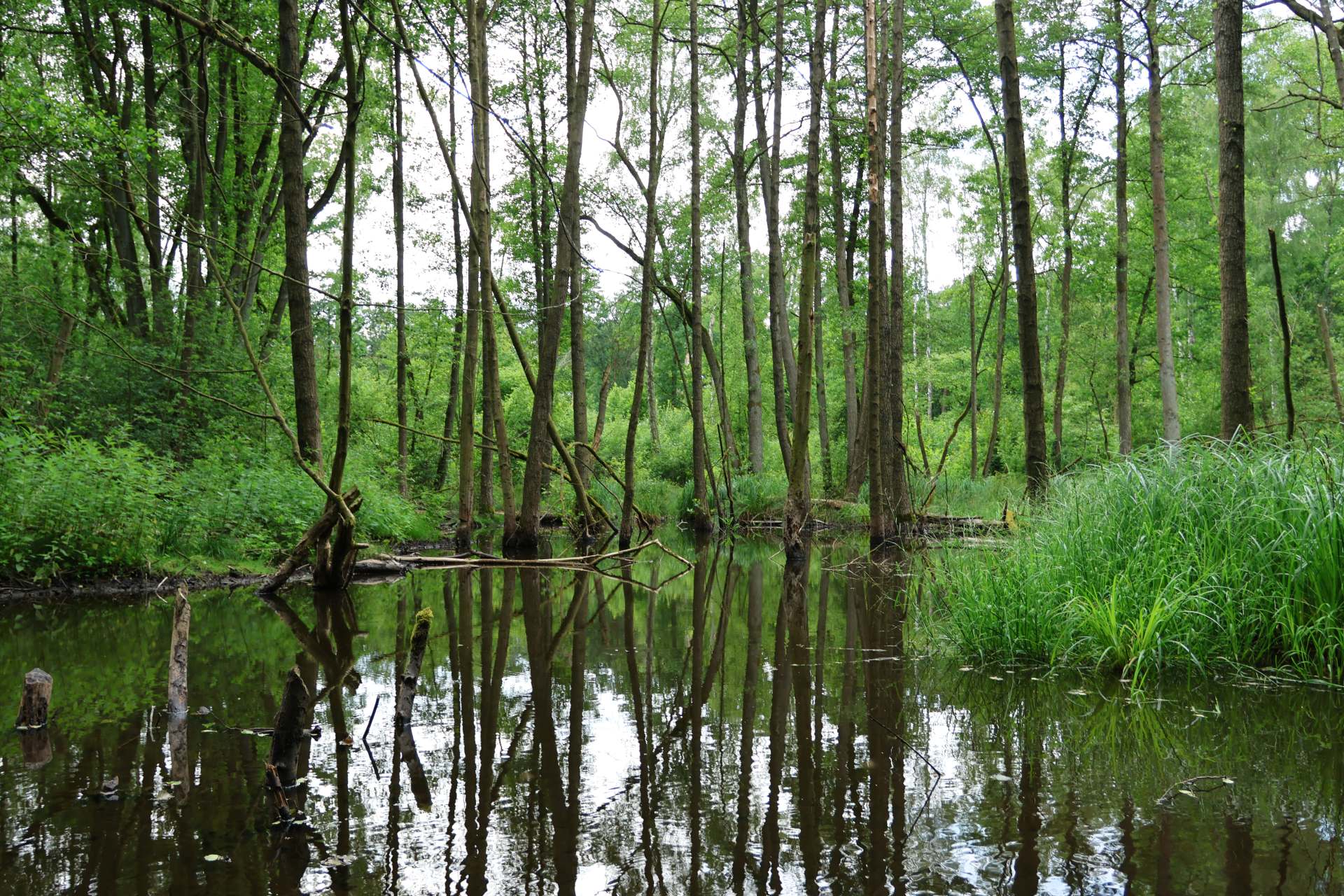Wholesome wetlands are very important for biodiversity, local weather, and native communities. Within the Oder Delta, the rewetting of the Rożnowo Plain is showcasing the transformative affect of rewilding and delivering wide-ranging advantages.
Maciej Sobieraj / Fundacja dla Klimatu i Bioróżnorodności
Revitalising a watery ecosystem
Within the Oder Delta, an unlimited watery ecosystem on the German-Polish border, the restoration of a wetland is highlighting the transformative affect of rewilding. Water is returning to 26 hectares of the Rożnowo Plain, a wetland situated inside the Oder Delta rewilding panorama on the floodplain of the Ina River. Marking a big milestone in delta rewilding efforts, revitalisation of the ecosystem is providing a brighter future for an array of wildlife species and benefitting native farmers and communities.
Human interventions within the Oder Delta have broadly disrupted the pure circulation of water and negatively impacted ecosystems. Many areas surrounding rivers have been drained and the land reclaimed for human exercise, resembling agriculture and forestry. Individuals straightened, deepened, and embanked riverbeds, whereas quite a few obstacles resembling dams and weirs additional limit waterways.
Right now, in collaboration with native companions, the Rewilding Oder Delta workforce are rewetting peatlands, enhancing water retention, and restoring riparian connectivity. The return of extra pure water circulation is bringing optimistic change, boosting biodiversity, enhancing the optimistic local weather affect of the panorama, and enriching lives and livelihoods.
European wetlands in decline
As long-term residents of the Rożnowo space on the Polish aspect of the Oder Delta, Marta Hapoń-Sobieraj and Maciej Sobieraj are effectively conscious of the ecological worth of the native panorama and the challenges posed by human exercise. Whereas the mosaic of wetlands, marshes, and peatlands on their doorstep is house to a variety of wildlife species, many areas have been drained for agriculture.
“Just a few years in the past, an area farmer right here determined to accentuate his land use,” explains Maciej. “He wasn’t conscious of the injury he was doing, not solely to his land, but in addition to neighbouring plots. By draining water, he worn out riparian habitats that have been alleged to function a authorized foundation for establishing an adjoining protected space.”
This small-scale intervention displays a European-wide development. Regardless of their ecological significance, greater than half of the continent’s wetlands have been misplaced over the previous 300 years, with Poland one of many international locations most closely impacted. Over the past century, large-scale drainage devastated Poland’s as soon as intensive wetlands, which have been previously thought-about unproductive wastelands. The lack of over 4 million hectares of wetland habitat led to a dramatic decline in water high quality and the variety of species residing there.
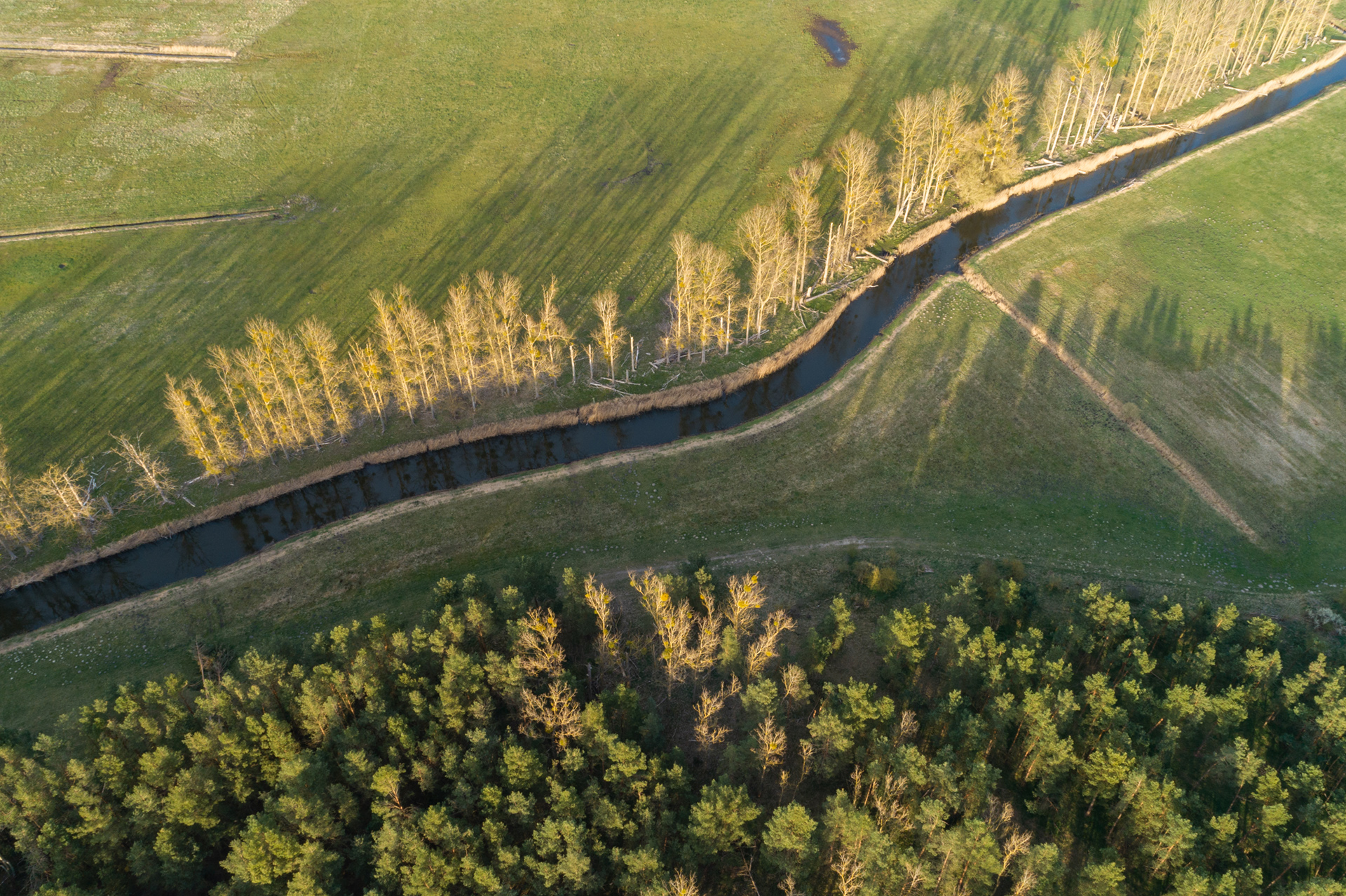
Florian Möllers
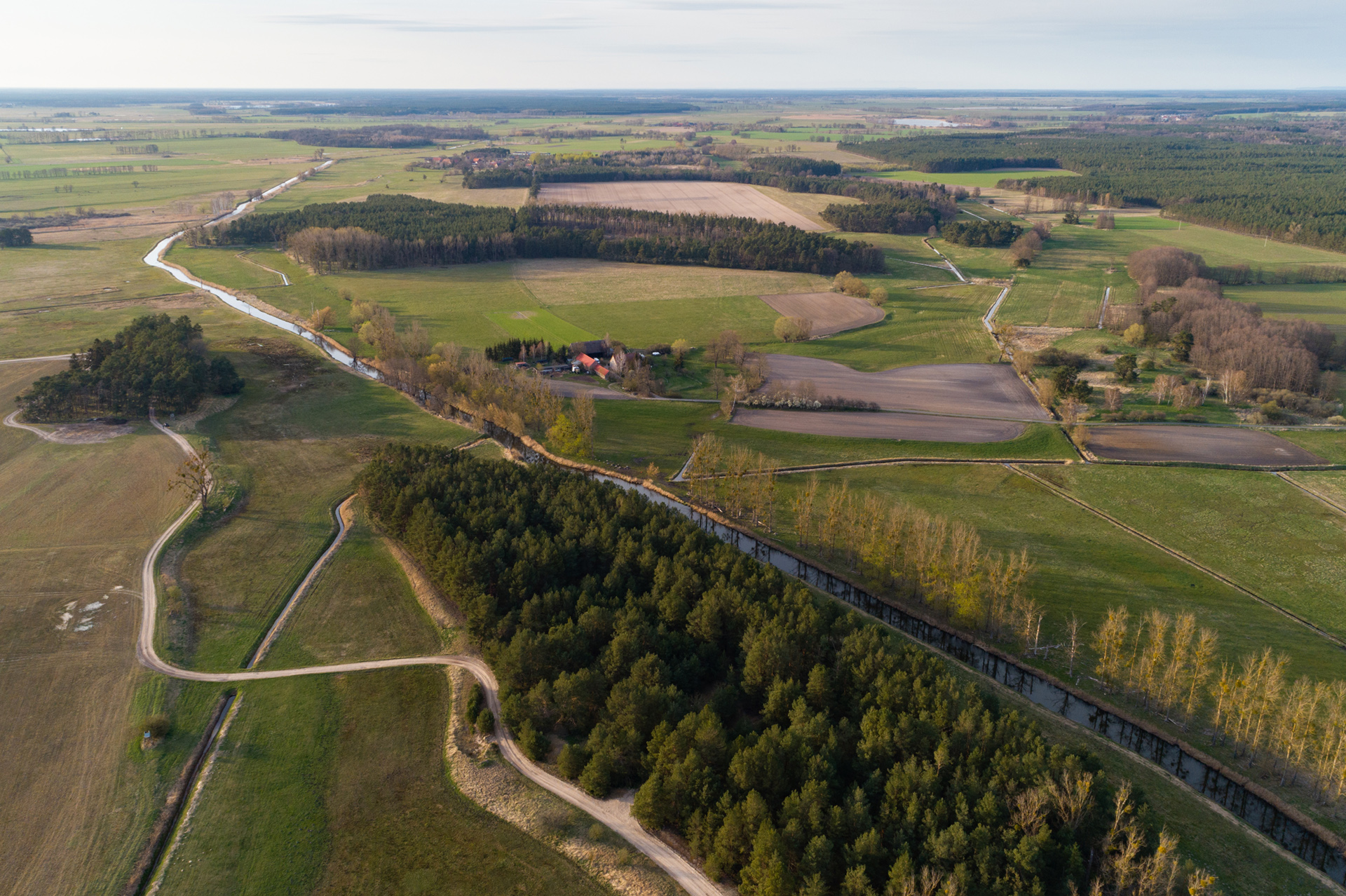
Florian Möllers
In direction of wetland restoration
In 2023, to handle the challenges confronted by their native panorama, Marta Hapoń-Sobieraj and Maciej Sobieraj established the Basis for Local weather and Biodiversity.
“The situation of the Ina River and its watershed is near my coronary heart,” says Maciej. “The Rożnowo space is a useful supply of water for the Ina River and residential to some wonderful biodiversity. In 2001, the Maszewo Municipality recognized the Rożnowo Plain for defense, however no additional motion was taken. My spouse Marta and I lastly determined that we needed to do one thing and started on the lookout for methods to allow nature restoration on this space, which is a vital refuge for wetland birds and amphibians.”
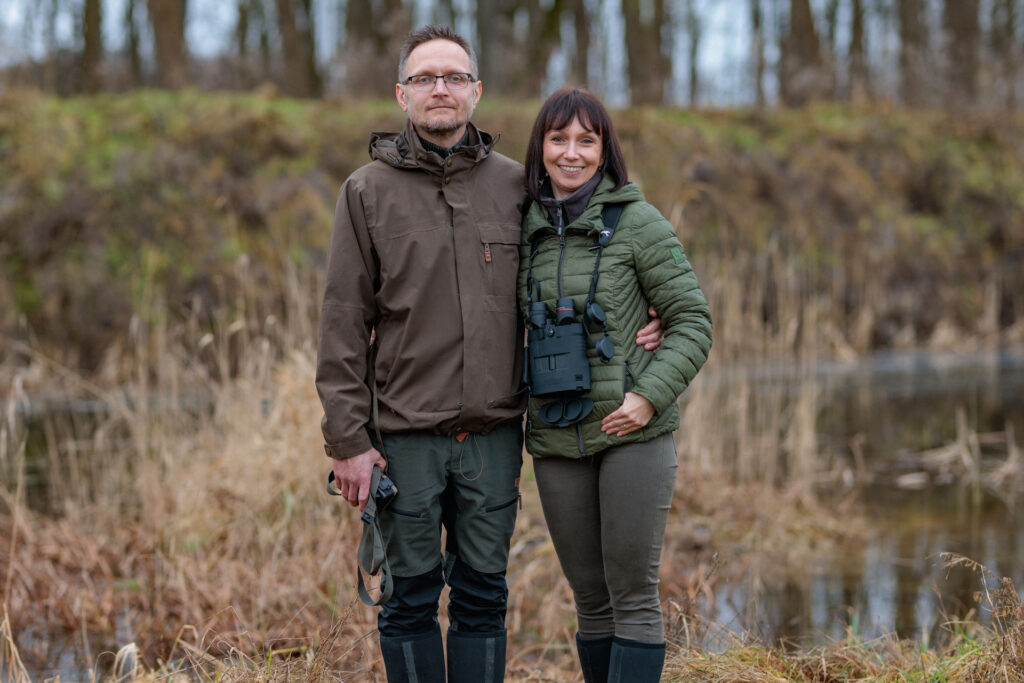
Rewilding Oder Delta
Beavers as brokers of change
Thanks to shut cooperation with Rewilding Oder Delta workforce, Marta and Maciej obtained funding from Rewilding Europe to buy and shield practically 26 hectares of the Rożnowo Plain. With beavers returning to the realm round a decade in the past, the couple then left the eco-engineers to go about their enterprise.
“The beavers proceed to do an awesome job at restoring pure processes,” says Marta Hapoń-Sobieraj. “All they wanted was for us to cease interfering. They’ve reshaped the panorama in such a method that water doesn’t escape, and their optimistic affect might be seen throughout an in depth space. Together with adjoining forest areas, we are able to confidently speak about rewetting 80 hectares. We’re witnessing the revitalisation of the panorama all over the place, with alder forests regenerating and new habitats showing.”
Flourishing biodiversity
This revitalisation of the panorama is supporting widespread wildlife comeback.
“We’ve recorded the presence of all species that might doubtlessly stay right here, together with the rarest ones,” says Maciej. “Within the first 12 months, a pair of black storks discovered a great place right here and raised younger. This 12 months, a pair of lesser noticed eagles – that are additionally known as ‘frog eaters’ – constructed a brand new nest on the sting of the wetland, attracted by the return of amphibians. We’ve additionally noticed wolves, badgers, polecats, and otters, and an enormous vary of hen species. Lately, we even encountered a European bison.”
The small rise in water degree ensuing from the rewetting of the Rożnowo Plain additionally presents hope for the drought-vulnerable Małka – a tributary of the Ina River which in recent times has dwindled to a trickle. Migratory trout and river lamprey used to spawn within the Małka, and the hope is that these species will return as water circulation within the river is progressively restored.
Constructive local weather affect
The dam-building actions of Rożnowo’s beavers sluggish the circulation of water via the catchment, permitting surrounding land to re-absorb it. That is significantly vital, contemplating the broader Kliniska Forest District is a high-risk drought and wildfire zone. Rewetting the Rożnowo Plain has additionally had a optimistic local weather affect – by rewetting areas of peat it prevents unwelcome carbon emissions.
“Wholesome peatlands are carbon sinks,” explains Maciej. “If the peatland right here was drained, it could launch a mean of 14 tonnes of carbon per hectare yearly.”
With their tree-felling and localised foraging, beavers assist to create complicated habitats that may buffer the impacts of local weather change. Research present that beaver wetlands can act as an important supply of freshwater in periods of drought, scale back the affect of flooding by slowing the advance of floodwater, and act as pure firebreaks in case of wildfires.
“Not everybody appreciates the beavers’ actions,” Marta admits, outlining how easy measures like circulation pipes in dams successfully management the water degree, minimising localised flooding. “This works effectively, satisfying each beavers and folks. The animals perform peacefully, the peatland stays moist, and crops and roads are protected.”
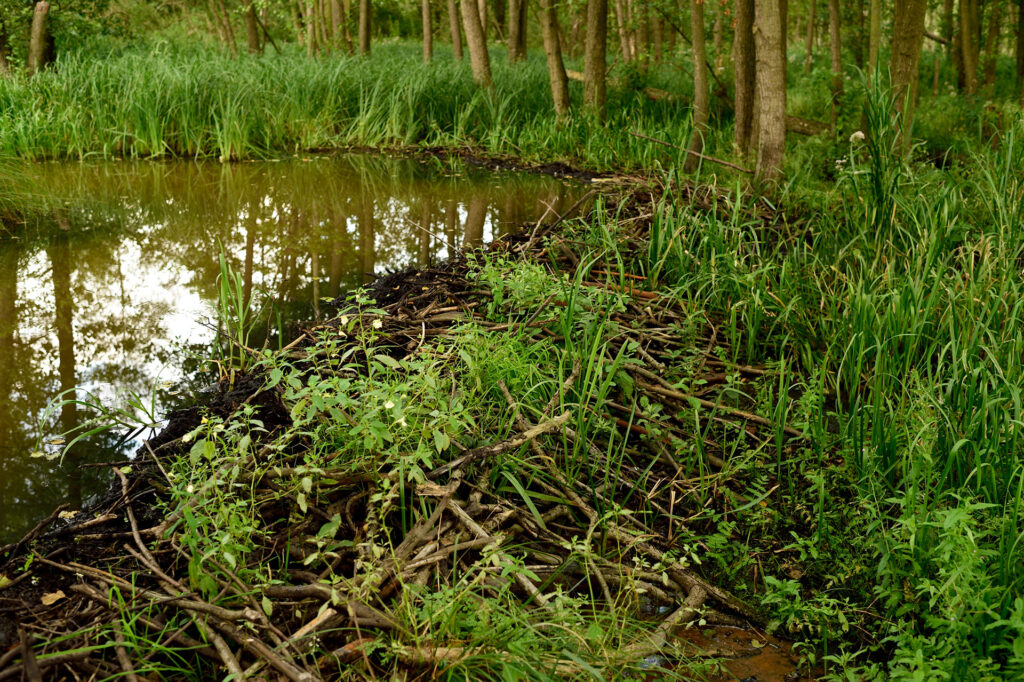
Solvin Zankl / Rewilding Europe
Stakeholder collaboration
Past monitoring the ecological advantages of rewetting, Marta and Maciej workforce up with fellow residents in cleansing rivers and planting bushes. Farmers and landowners are supported in adopting practices that align with rewilding.
“Foresters now perceive that areas close to streams and wetlands host 90 p.c of amphibian populations and keep away from harvesting in such locations,” says Maciej.
For farmers making an attempt to enhance yields in areas adjoining to wetlands, there are additionally benefits to rewetting.
“Wetland vegetation accumulates nitrogen, performing like a organic therapy plant, filtering wastewater, pollution, and fertilisers,” explains Maciej. “Nutrient ranges are enhanced, soils are rehydrated, and a burgeoning microclimate is born. The top outcome: crops resembling corn develop higher.”
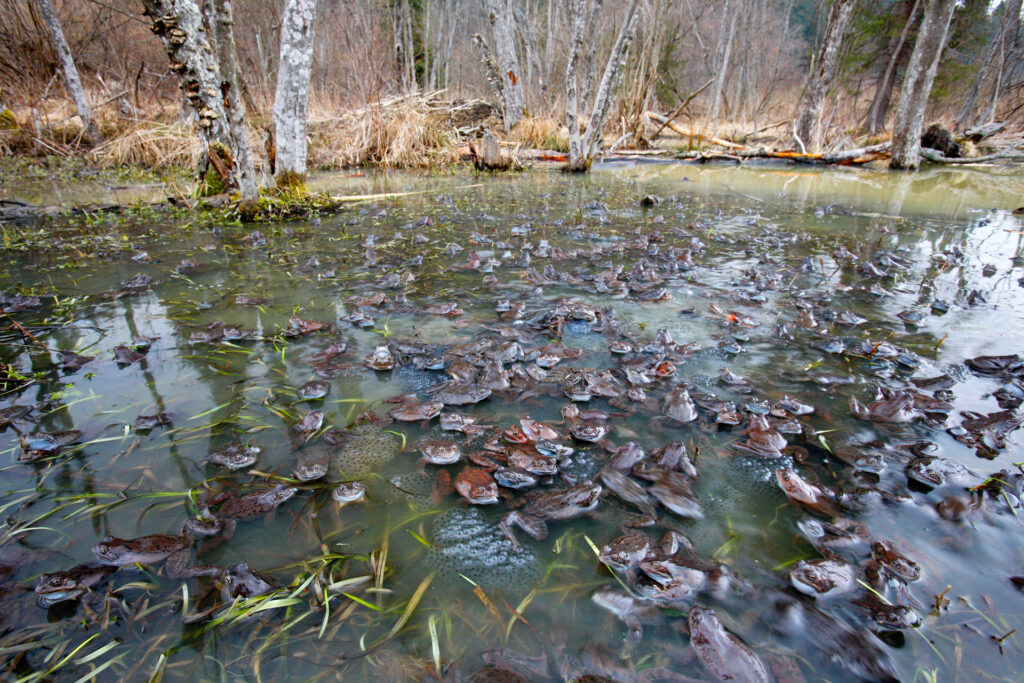
Grzegorz Lesniewski
A mannequin for future conservation
With wetlands proving indispensable within the combat in opposition to local weather change, the Oder Delta’s resurgence presents hope for the way forward for Europe’s pure landscapes.
Alongside the cooperation between the Oder Delta rewilding workforce, the Basis for Local weather and Biodiversity, and different companions, the rewetting of the Rożnowo Plain demonstrates the significance of balancing conservation with native livelihoods and is a testomony to what might be achieved after we select to work with nature slightly than in opposition to it.
This story is predicated on an interview by Magdalena Ulrich of the Rewilding Oder Delta workforce.



